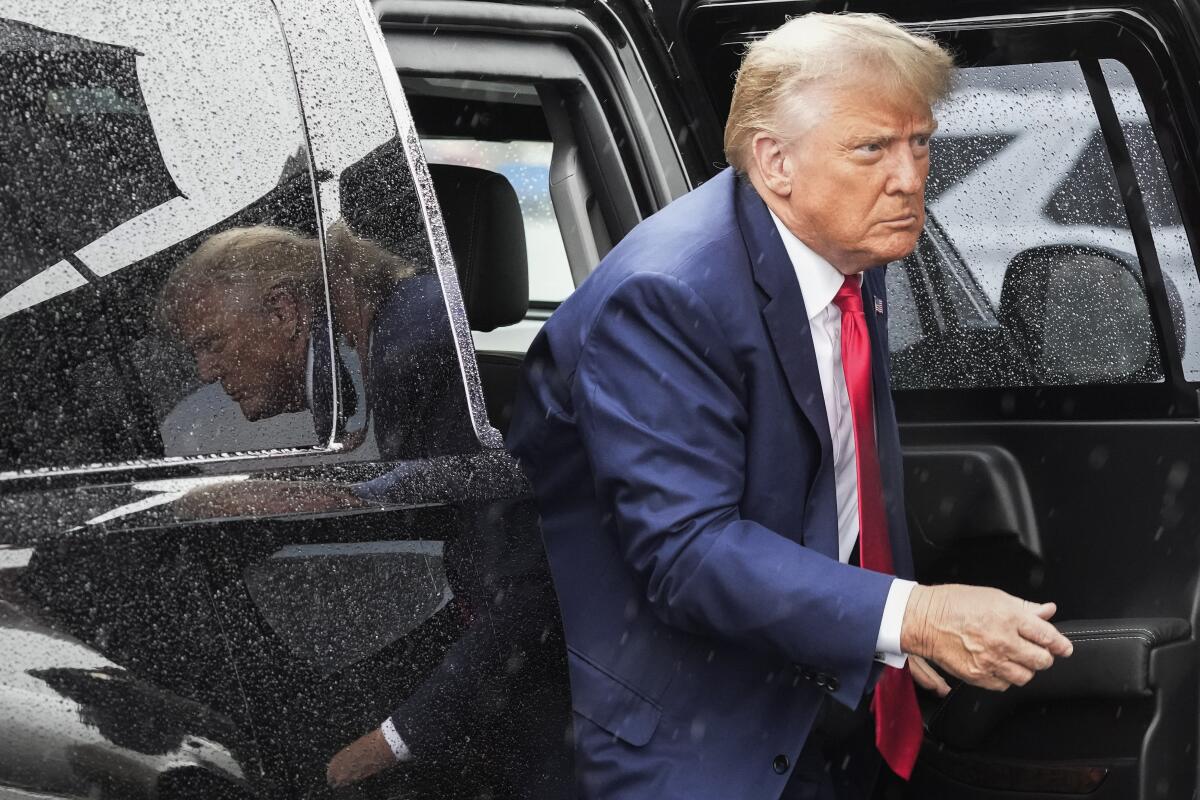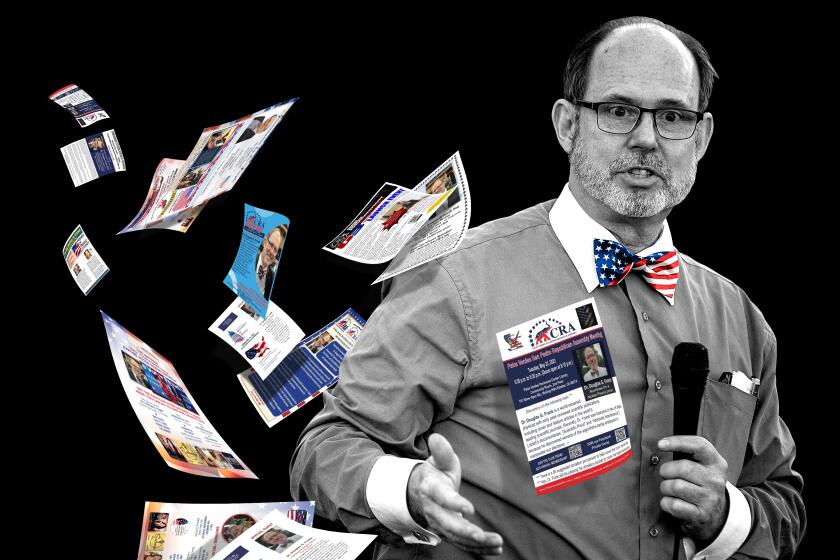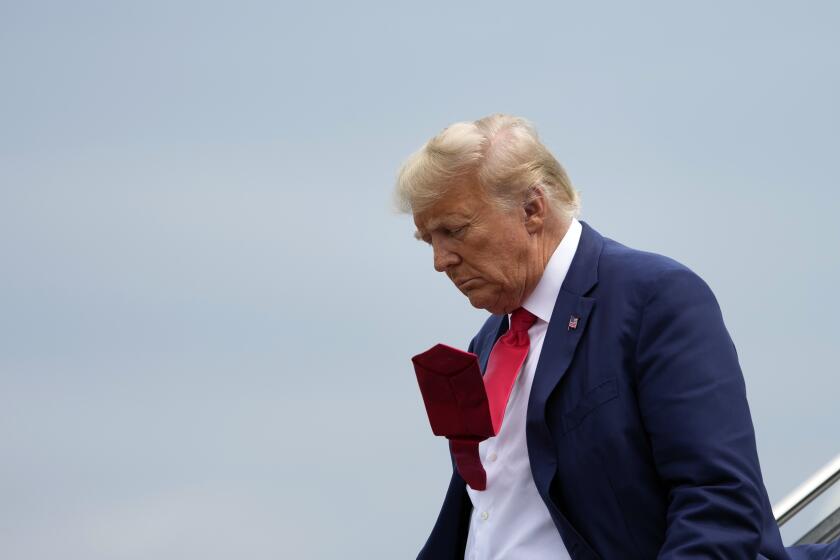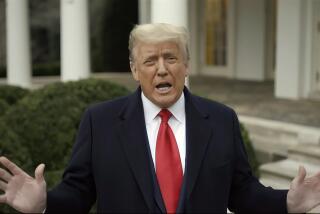Trump legal team pushes back on proposed limits to how he can use information in 2020 election case

WASHINGTON — Special counsel Jack Smith’s team Monday disputed rules proposed by former President Trump’s legal team to define how evidence can be distributed during the trial over alleged efforts to overturn the 2020 election, accusing Trump of trying to play out his trial in the media.
“The government proposed a reasonable protective order consistent with current practice in this District. The defendant instead proposed an order designed to allow him to try this case in the media rather than in the courtroom,” Smith said.
Earlier Monday, Trump’s legal team, led by lawyer John Lauro, suggested in a 29-page motion that the court should loosely define and expand whom Trump can share sensitive information with to prepare his defense to “volunteer attorneys,” expert witnesses, investigators or others without “paid employment arrangements.”
In an email exchange included in the filing, a prosecutor described the potential wording as “almost boundless.”
Trump’s team also wants to preclude the Justice Department from marking material from other government entities as sensitive. This would probably include records produced by the Secret Service, U.S. Capitol Police and Department of Homeland Security; those agencies have fought to keep many of those documents private because they relate to security planning.
Lauro also requests that “general mental impressions,” even of sensitive documents, be exempted from the protective order.
“The press and the American people in a campaign season have a right to know what the evidence is in this case provided that this evidence is not protected otherwise,” Lauro told CNN’s Dana Bash on “State of the Union” on Sunday.
Smith also responded in Monday’s brief to Lauro’s statements over the weekend about sharing evidence with the media, stating that “there is no right to publicly release discovery material, because the discovery process is designed to ensure a fair process before the Court, not to provide the defendant an opportunity to improperly press his case in the court of public opinion.”
U.S. District Judge Tanya Chutkan announced Monday that she will hold a hearing by Friday to settle the dispute.
Smith’s office asked Chutkan on Friday to set limits on what Trump’s team can do with evidence that was collected during the lengthy investigation and that will be shared with the defense as part of the discovery process. Smith asked that Trump and his lawyers be prohibited from disclosing materials provided by the government to anyone other than his legal team, possible witnesses, the witnesses’ lawyers or others approved by the court.
Prosecutors indicated during Trump’s arraignment Thursday that they would ask for such a protective order, which is a normal part of a felony trial. Trump pleaded not guilty to four felony charges related to alleged attempts to overturn his 2020 election loss and block the peaceful transition of power.
The protections Smith is seeking for materials marked sensitive would be even more restrictive. In their initial request, prosecutors asked to prohibit Trump’s attorneys from providing sensitive details from grand jury transcripts and other evidence to the former president because they feared he would publicly share them or take other actions that could obstruct the case. Trump would be allowed to view the evidence but not be allowed to write down personal identifying information from those documents.
Douglas Frank has given dozens of speeches alleging voter fraud in California and across the country, and has helped create teams aimed at disrupting state election systems.
“Such a restriction is particularly important in this case because the defendant has previously issued public statements on social media regarding witnesses, judges, attorneys, and others associated with legal matters pending against him,” prosecutors wrote in Friday’s filing, adding that they are concerned the former president might share sensitive information online that could have a “harmful chilling effect on witnesses.”
Smith’s filing pointed to a post Trump made on Truth Social that day that said “IF YOU GO AFTER ME, I’M COMING AFTER YOU!” Monday’s filing from Trump’s legal team echoed a statement from his campaign that the message was not directed at those involved in the case.
On Saturday, Chutkan rejected Trump’s request for a three-day extension to respond to the order. In a series of Truth Social posts, the former president demanded her recusal. In a post Monday, he called Chutkan the special counsel’s “draft pick” and “dream” judge.
The posts undercut Lauro’s efforts Sunday to publicly walk back Trump’s calls for recusal, saying on a podcast hosted by Florida defense attorney David Markus that Trump was speaking with a “layman’s political sense.”
The former president pleaded not guilty Thursday in his first court appearance in the case related to efforts to overturn his 2020 election loss.
Trump continued criticizing Smith and the request for a protective order, casting it as infringing on his right to free speech.
“I shouldn’t have a protective order placed on me because it would impinge upon my right to FREE SPEECH,” Trump posted Monday morning. “Deranged Jack Smith and the Department of Injustice should, however, because they are illegally ‘leaking’ all over the place!”
More to Read
Get the L.A. Times Politics newsletter
Deeply reported insights into legislation, politics and policy from Sacramento, Washington and beyond. In your inbox three times per week.
You may occasionally receive promotional content from the Los Angeles Times.













